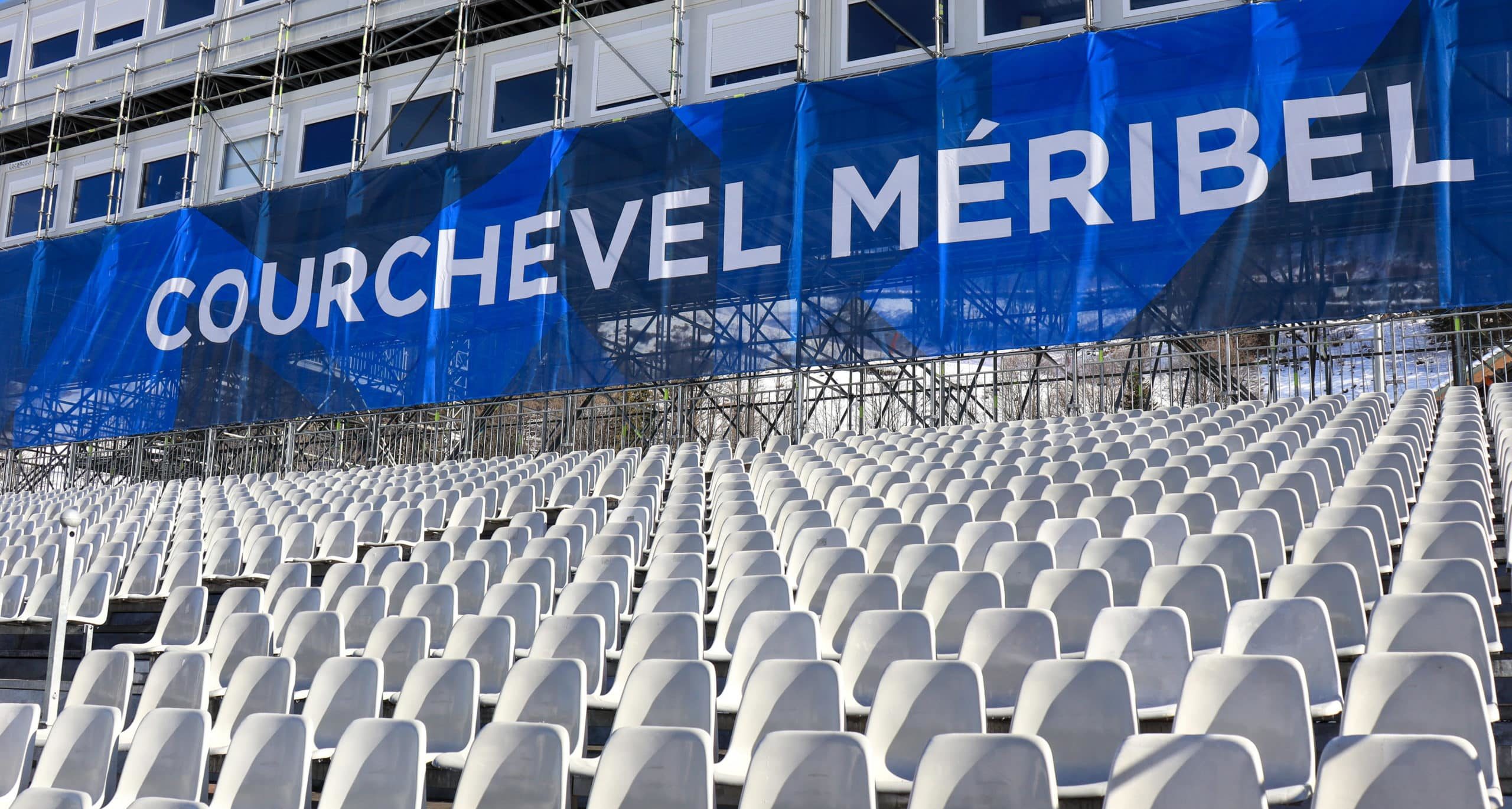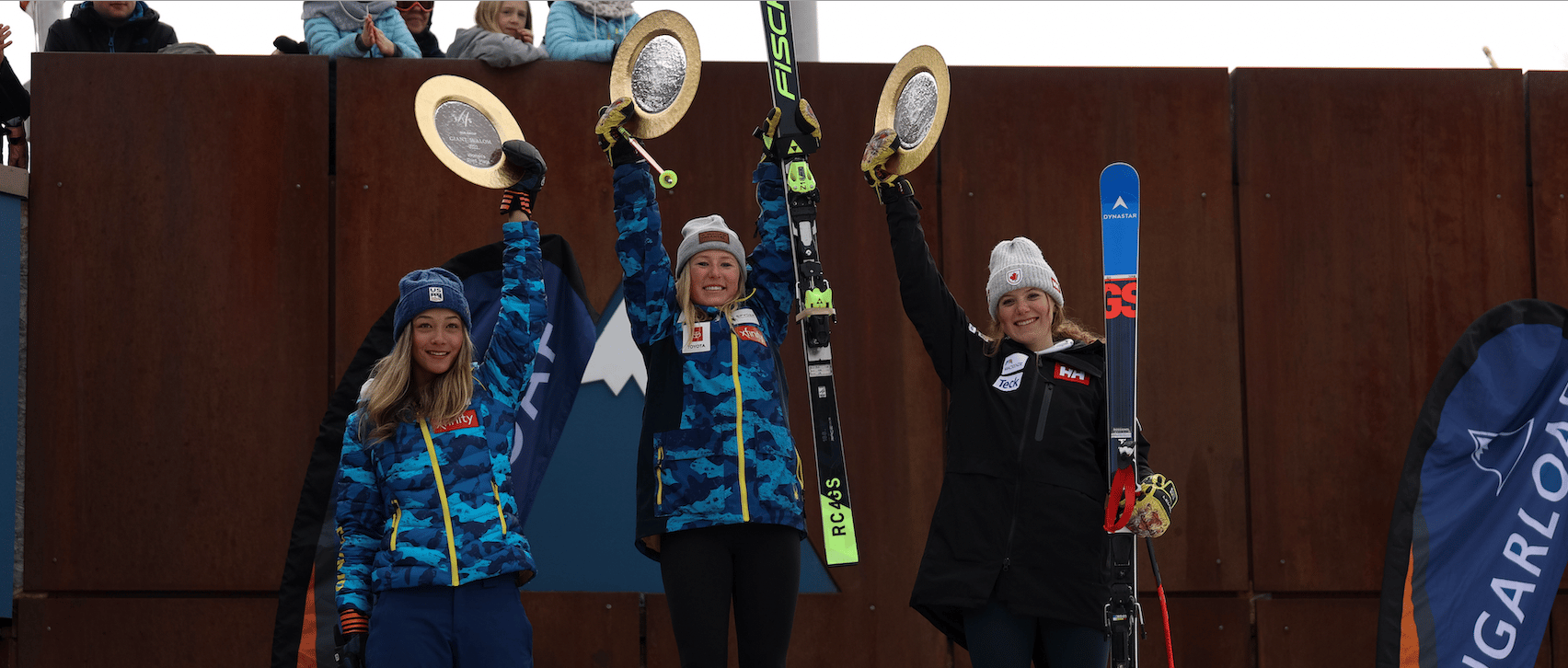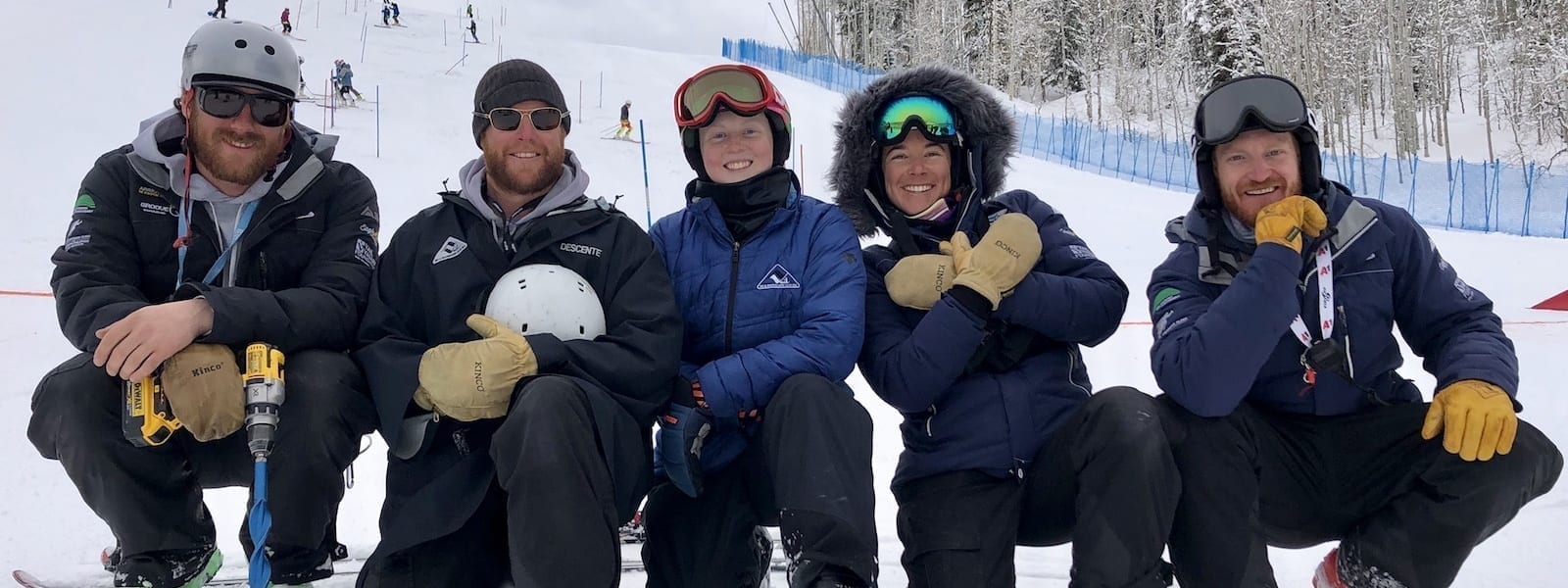Inside the Ski Racing Mind: Get Fired Up in the Starting Gate
 In my last article directed to racers, I offered you practical techniques for lowering your intensity when you get too worked up before races. Though less common, low intensity and letdowns in intensity can also prevent you from skiing your best. A decrease in intensity may cause all the things that enable you to ski fast, to disappear. Physically, you no longer have the blood flow, oxygen, and adrenaline necessary for the strength, agility, and stamina you need for ski racing. Mentally, you lose the motivation and focus that enables you to ski with determination and purpose. Just like psych-down techniques, when your intensity is too high, you can use psych-up techniques to raise your intensity when it’s too low.
In my last article directed to racers, I offered you practical techniques for lowering your intensity when you get too worked up before races. Though less common, low intensity and letdowns in intensity can also prevent you from skiing your best. A decrease in intensity may cause all the things that enable you to ski fast, to disappear. Physically, you no longer have the blood flow, oxygen, and adrenaline necessary for the strength, agility, and stamina you need for ski racing. Mentally, you lose the motivation and focus that enables you to ski with determination and purpose. Just like psych-down techniques, when your intensity is too high, you can use psych-up techniques to raise your intensity when it’s too low.
Intense Breathing
What do you notice that just about all World Cuppers do before their race runs? They take several conscious deep breaths as they get in the starting gate. Some racers, like Bode Miller or Lindsey Vonn, take slow deep breaths to calm themselves down. Others, such as Manfred Pranger and Julia Mancuso, take intense breaths with an aggressive exhale.
Just as deep breathing can reduce intensity, intense breathing can increase it. If you find your intensity dropping, several hard exhales can take your body and your mind to a more intense level. It’s a useful practice not only before race runs, but also before training runs to take one or two intense breaths. In fact, I encourage you to make intense breathing a part of your training and race routines when you’re intensity goes down.
Move Your Body
Remember that intensity is, most basically, physiological activity. The most direct way to increase intensity is with physical action. In other words, move your body! Walk or run around, jump up and down, do plyometrics. Anything to get your heart pumping and your body going will raise your intensity. One top junior racer I know likes to work up a sweat before race runs to ensure that his body is ready to go all out from the moment he hits the starting wand.
High-energy Self-talk.
One cause of drops in intensity is letdown thoughts. Interestingly, letdown thoughts can be either positive or negative. Positive thinking that causes your intensity to decline includes, “I’ve got this race won,” or “I’m by far the best racer out here today.” With this sort of positive thinking, you’re sending the message to your body that it doesn’t need to get amped up for the race.
Negative letdown thoughts include “I don’t have a chance today” or “There’s no way I can ski well with these conditions.” This negativity sends the message to your body that you’ve given up, so it doesn’t need to even try. When either of these types of thinking occurs, you can be sure you won’t ski your best.
When you start to have these thoughts, you need to replace them with high-energy self-talk. Self-talk such as “Keep attacking,” “Stay pumped,” or “Bring it on!” will fire you up, get you motivated and focused, and your body will respond with the intensity it needs for you to ski fast and aggressively.
Intensity Keywords
Just as you can use keywords to lower you intensity, you can use keywords to counter letdowns and to psych yourself up before races. Saying intensity keywords such as “Charge!,” “Hustle!,” or “Attack!” with conviction and energy will raise your intensity and generate positive thoughts and emotions that will help you to ski your best.
 High-energy Body Language
High-energy Body Language
Because intensity is physical, it’s ideal to raise intensity directly with physical movement. In addition to having you move your body, you can also increase your intensity with high-energy body language.
One thing you’ll notice when you use high-energy self-talk and intensity keywords is that it’s just about impossible to use them without also using high-energy body language. When you use high-energy self-talk and intensity keywords, your body just seems to follow along. Often without realizing it, you pump your fist or slap your thigh and that high-energy body language gets you even more fired up and ready to ski your best.
Music
As I noted in that last article for racers, music has a profound physiological and emotional impact on us. Yes, it can calm you down, but it can also get you really fired up, depending on the type of music you listen to. When you listen to high-energy music, such as hip hop or rock ‘n roll, you feel inspired, energized, and ready to take on the world. That’s why you see so many World Cuppers with earbuds jamming to their favorite music before their starts.
Key Race Situations
There are common race situations in which you can expect that your intensity will shift away from prime intensity. If you can identify these situations when they occur, you can more quickly take steps to prevent a change in intensity that may hurt your skiing.
Overintensity is most common in pressure situations such as when you feel that you must have a good result to qualify for the next race series or you just surprised yourself with a great first run. Anytime you believe that you must do well, your intensity will probably rise beyond your prime intensity. Focusing on the outcome, particularly on the possibility of failure, will also cause you to feel anxiety that will likely hurt your skiing.
Underintensity is seen most often in race situations where you believe that you’re the best skier on the hill, you think you have the race won after the first run, or you think you have no chance of having a good result (perhaps you made a huge mistake on the first run and are really far out). In the former case, you believe that you don’t need to try any longer because you think you have the result in hand. In the latter case, you’re giving up, so you’re telling your body that it can relax now.
There is not, however, a consistent pattern in how intensity will change for all racers. Racers in the same race situation can experience different changes in intensity. For example, when leading after the first run, one racer may have an increase in intensity and feel very nervous because she’s never lead a race before and doesn’t totally believe that she can win the race. While another racer in the same situation might have a decrease in intensity and feel a letdown because she’s already mentally at the awards ceremony picking up trophy even though she hasn’t skied her second run yet. You have to figure out how you typically react and then use the psych-up and psych-down techniques I described in this and my previous article to achieve and maintain prime intensity.
Follow me on Facebook, Twitter, or YouTube.
About Dr. Jim Taylor:
Dr. Jim Taylor knows the psychology of ski racing! He competed internationally for Burke Mtn. Academy, Middlebury College, and the University of Colorado. For the past 25 years, Jim has worked with many of America’s leading junior race programs as well as World Cup competitors from many countries. He is a clinical associate professor in the Sport&Performance Psychology graduate program at the University of Denver. Jim is the author of Prime Ski Racing: Triumph of the Racer’s Mind and his latest parenting book is Your Children are Listening: Nine Messages They Need to Hear From You.
Click here to go to Dr. Jim’s archive.





















